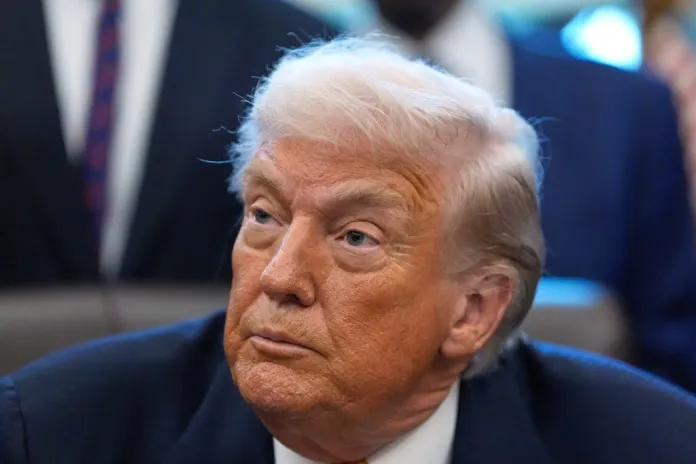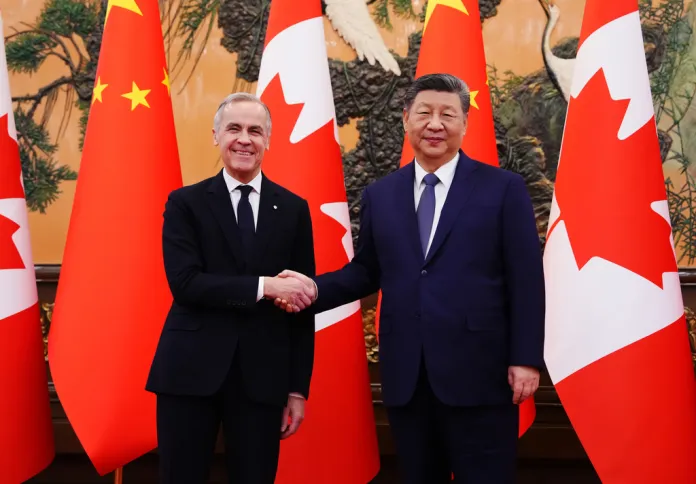CBO says foreign companies could pick up some tariff costs
The Congressional Budget Office (CBO) has lowered its forecast for tariff revenue following updated data on the high import duties implemented under the Trump administration. The new projections indicate that tariffs will reduce federal deficits by $3 trillion over the next decade, down from an earlier estimate of $4 trillion. This reduction includes a $2.5 trillion decrease in primary deficits over 11 years and $500 billion saved in federal interest costs.
The CBO report notes that foreign exporters are now expected to absorb about 5% of the tariff increases by lowering their prices, a revision based on evidence from previous tariff hikes on China.This adjustment means the cost impact on U.S. businesses and consumers will be less severe than initially thought, leading to a smaller decline in imports.
However, there remains uncertainty about future tariff policies, as the administration could alter exemptions or rates.The CBO also acknowledges limited experience in forecasting revenue from tariffs of this scale, given that such high tariffs have not been imposed in decades. additionally, legal challenges to the president’s tariff authority are underway and being monitored by the CBO.
CBO says foreign companies could pick up some tariff costs
(The Center Square) – The Congressional Budget Office slashed its tariff revenue forecast to reflect new data on the highest import duties the U.S. has seen in nearly a century.
The CBO, which Congress created to help evaluate economic and budgetary policies, said the new projections show tariff changes will reduce deficits by $3 trillion over the next decade. That’s down from the CBO’s earlier estimate of $4 trillion in August.
The latest update from CBO Director Phillip Swagel found the increase in tariffs implemented since President Donald Trump took office would decrease primary deficits by $2.5 trillion over 11 years if the higher tariffs persist throughout the 2025–2035 period. By reducing the need for borrowing, those tariffs will lower federal interest costs on debt by $500 billion.
“Roughly two-thirds of the downward revisions result from adjustments to reflect new data,” according to the report.
The new projections assume foreign businesses would pick up more of the costs than initially expected.
“We had previously projected that foreign exporters would not reduce their prices to offset increased tariff rates. We now project that foreign exporters will reduce their prices by an amount equivalent to 5% of the increase in tariff rate,” according to the report.
That 5% assumption is “consistent with evidence from increases in tariff rates on China that were implemented in 2018 and 2019.”
That could help U.S. consumers frustrated with high costs.
“As a result, the cost of imported goods for U.S. businesses and consumers rises by less than we had previously projected, leading to a smaller decline in imports,” according to the CBO report.
A recent Goldman Sachs report found that U.S. consumers will pay 55% of the costs resulting from Trump’s tariffs, U.S. businesses will pay 22%, and foreign exporters will pay 18%. That report said that most tariffs will be passed on to American consumers as businesses adjust prices in the coming months.
The CBO projections come with uncertainty, especially around how Trump could change tariffs over time. Trump has already made dozens of unilateral changes to tariff rates as he looks to give America a trade advantage around the world.
“One source of uncertainty about these projections is that the Administration could change how tariff policies are administered,” the report noted. “If mechanisms for additional exemptions were implemented, the tariff duties collected could decline substantially.”
The CBO, created in 1974, has little practice with estimating tariff revenue.
DEFICIT HAWKS THUMB THEIR NOSE AT TRUMP’S $2,000 TARIFF REBATE PROMISE
“The United States has not implemented increases in tariffs of this size in many decades, so there is little empirical evidence to guide our estimates of their long-term effects. Consumers and businesses could be more or less responsive to increases in tariffs of this size, which would cause trade and revenues to diverge from projected amounts,” Swagel said.
A group of small businesses and states has challenged Trump’s authority to use tariffs without congressional authority. The CBO said it is watching that case, which remains pending before the U.S. Supreme Court.
" Conservative News Daily does not always share or support the views and opinions expressed here; they are just those of the writer."


